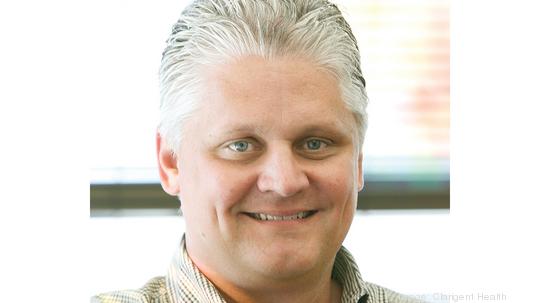
A Mason-based health tech startup developing an app-based tool that can help clinicians identify patients at risk of suicide won a federal grant from the National Institute of Health that the company said will help it eliminate bias in its platforms.
Clarigent Health, which released its first commercial product, Clairity, in October, received a Small Business Innovation Research grant from the National Institute of Health, officials said Friday. The amount was not disclosed, but the funds will support research the company is doing to identify and eliminate AI bias in its algorithms to ensure fair and accurate assessments.
Clarigent’s platforms analyze speech to help identify patients at risk of suicide and other mental health concerns. Using artificial intelligence, the algorithms identify vocal biomarkers that signal potential risks – cues that might be otherwise missed by humans.
Clarigent Health said it's committed to building machine learning algorithms that treat diverse groups fairly without over – or under – reporting levels of risk. Researchers will investigate how patient and setting characteristics, including demographics like race, ethnicity and sexual orientation, influence accuracy.
“Our organization is constantly working to improve our algorithms and ensure fairness,” Clarigent founder and CEO Don Wright said in a release.
“As an AI startup, we’re proud to be driving progress, but we also face new ethical issues,” Wright added in an email to the Courier. “It is a top priority to ensure our algorithms are fair regardless of demographics or environment, so we can ensure that we’re delivering accurate assessments.”
The grant will also support investigation of the effects of Covid-19 on the algorithms. Data collected in different environments, including via telehealth, may impact the model results, Clarigent said. It’s also possible that relevant “thought markers” for suicide have shifted across the population because everyone has experienced such dramatic life changes amid the pandemic.
The research team has already begun the analysis and will continue collaborating to consider clinical implications.
“Our goal is to improve prediction accuracy and understand how these characteristics directly or indirectly bias our models,” Joshua Cohen, Clarigent Health’s data science director and the grant’s principal investigator, said. “This is an important and often overlooked component of machine learning, and I’m excited to work on it.”
Clarigent Health was founded in 2018 as a spinout of Cincinnati Children’s Hospital. It’s backed by startup seed capital firm CincyTech.








